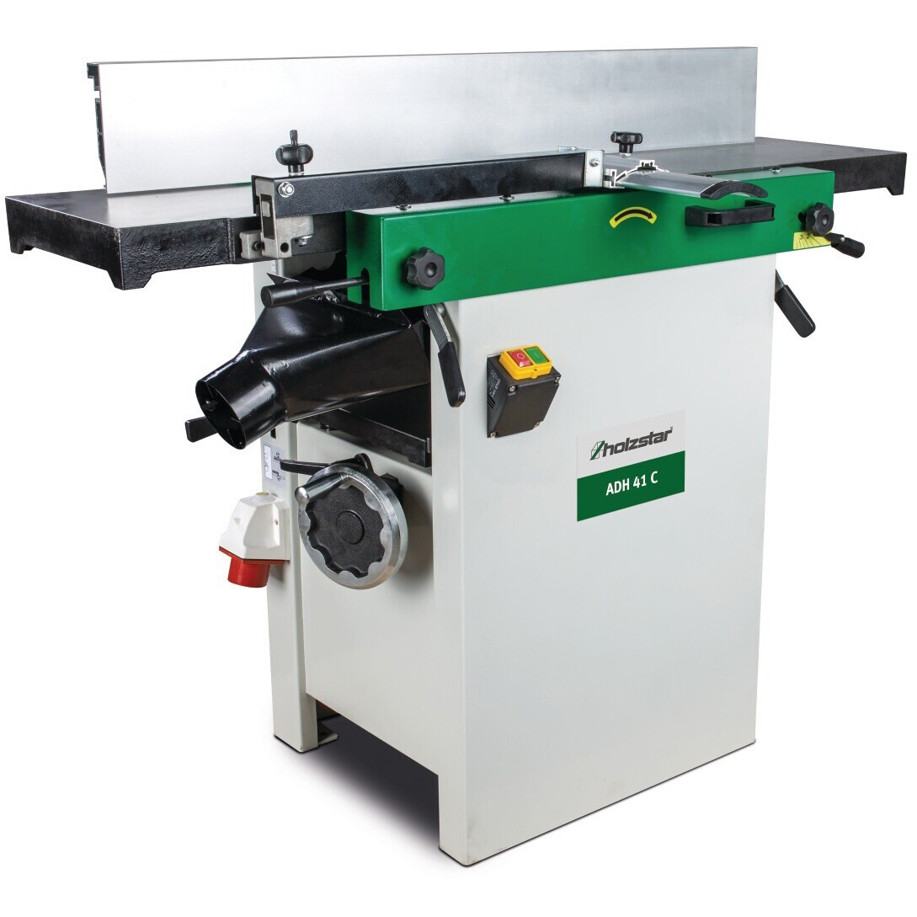The Ultimate Guide to Thicknessers with Dust Extraction
When it concerns woodworking, achieving the perfect finish requires both skill and the right tools. One of the most necessary devices for any serious woodworker is the thicknesser, likewise known as a planer. However, thicknessers can produce considerable amounts of wood shavings and dust, which can make the workshop environment undesirable and even hazardous. This is where thicknessers with integrated dust extraction systems come into play. In this guide, we will dive deep into the world of thicknessers with dust extraction, covering their functions, benefits, and what to search for when purchasing one.
What is a Thicknesser?
A thicknesser is a woodworking machine developed to smooth and measurement lumber to a specific thickness. Maschinen Set Mit 3 Akkus accomplishes this by feeding the wood through a set of turning blades that eliminate product from the surface. please click the next website page are available in various sizes and abilities, but what sets dust extraction-equipped models apart is their capability to minimize mess and enhance air quality in the workshop.
Benefits of Using a Thicknesser with Dust Extraction
- Improved Air Quality: An integrated dust extraction system substantially minimizes airborne particles, which can be damaging to health.
- Cleaner Workspace: Without shavings and dust covering the floor and tools, the workshop remains orderly and more pleasant to work in.
- Improved Machine Performance: A cleaner machine often runs much better, as the accumulation of dust and particles can affect the performance and longevity of the thicknesser.
- User Comfort: Reducing dust exposure contributes to a more comfy working environment, permitting woodworkers to concentrate on their craft.
- Performance: Automated dust extraction often operates in tandem with the thicknessing process, conserving time on clean-ups and making sure a stable workflow.
Secret Features to Look For in a Thicknesser with Dust Extraction
When shopping for a thicknesser with dust extraction, there are several key functions to consider. Understanding these can help you select the very best machine for your woodworking requires.
| Function | Description | Significance |
|---|---|---|
| Dust Collection Capacity | The size of the dust bag or bin that collects shavings. | A bigger capability suggests fewer interruptions for emptying. |
| Extraction Efficiency | The effectiveness of the dust extraction system in collecting dust and shavings. | High efficiency preserves clean air quality and a neat work area. |
| Motor Power | The power of the motor, typically determined in horsepower (HP). | Higher power permits smoother operation and can handle denser woods. |
| Feed Rate | The speed at which wood travels through the thicknesser. | Faster feed rates can cause quicker task completion however may impact surface quality. |
| Material and Build Quality | The kinds of materials utilized in building (e.g., cast iron, aluminum). | Sturdy construction makes sure durability and stability during operation. |
Leading Thicknessers with Dust Extraction on the marketplace
Selecting the right thicknesser can be daunting with many choices available. Below are some highly-rated models that provide outstanding dust extraction abilities:
| Model Name | Motor Power (HP) | Dust Collection Capacity | Price (Approximate) |
|---|---|---|---|
| DeWalt DW734 | 15 | 2.5 Bushels | ₤ 500 |
| Makita 2012NB | 15 | 3 Bushels | ₤ 600 |
| Jet JWP-208HH | 3 HP | 4 Bags (each 2.5 Bushels) | ₤ 1,100 |
| Powermatic PM-15 | 2 HP | 7 Bushels | ₤ 2,200 |
| Bauker Thicknesser | 1.5 HP | 10 Liters | ₤ 300 |
How to Set Up a Thicknesser with Dust Extraction
Setting up a thicknesser with a dust extraction system involves several steps to guarantee optimum efficiency and safety:
- Placement: Position the thicknesser in a well-ventilated area, preferably near a dust extraction system or input ducting.
- Connect Dust Extraction: Ensure the hose pipe is correctly attached to both the dust port on the thicknesser and the collection system.
- Plug in and Test: Before turning on the thicknesser, inspect all electrical connections and guarantee that no tools or particles are blocking its operation.
- Adjust Settings: Configure the thickness settings according to the desired material thickness.
- Security Gear: Always wear personal protective equipment (PPE) such as security goggles, dust masks, and hearing security.
Often Asked Questions (FAQ)
1. Do I need a thicknesser with dust extraction?
While you can use a thicknesser without dust extraction, purchasing one significantly assists to keep the work space tidy and ensures better air quality.
2. How frequently should I empty the dust collection bag?
This depends upon your thicknesser's usage. Normally, it's a good idea to empty the dust bag after a significant session of work, or when you see minimized suction.
3. Can I utilize a thicknesser on hardwood?
Yes, thicknessers can be used on wood. Just ensure that the model you select has sufficient motor power to manage more difficult products.
4. Is dust extraction loud?
Dust extraction systems can create sound, however features such as noise reduction and better construction can lessen sound levels.
5. How do I maintain my thicknesser and dust extraction system?
Routine maintenance includes cleaning the dust bag, looking for clogs in the hose pipe, and inspecting the blades for sharpness and wear.
A thicknesser with a dust extraction system is an important asset for anyone major about woodworking. Not only does it boost the quality of your work by offering a tidy, smooth finish, but it likewise contributes considerably to a safer and more arranged work space. As you seek to update or acquire your very first thicknesser, think about the essential features, advantages, and designs highlighted in this guide to choose the perfect tool for your requirements. Abrichthobel Maschine Kaufen woodworking tasks will thank you!

